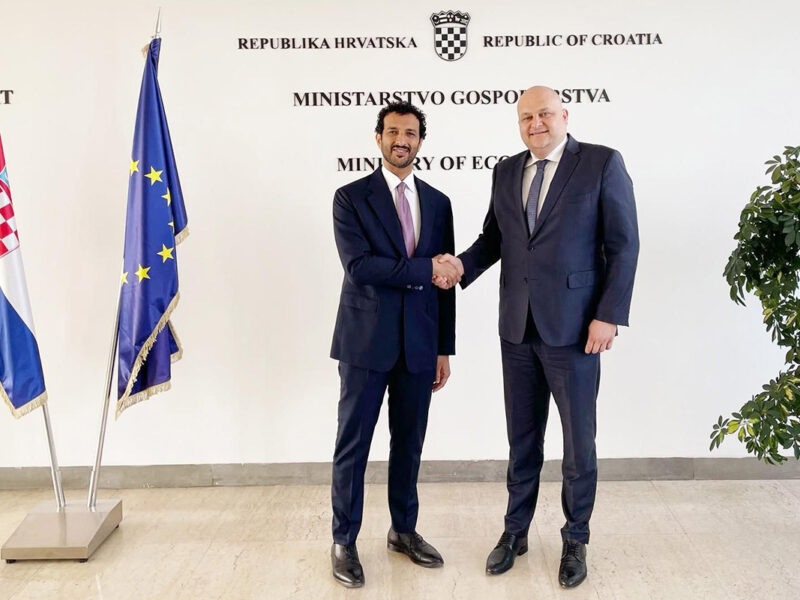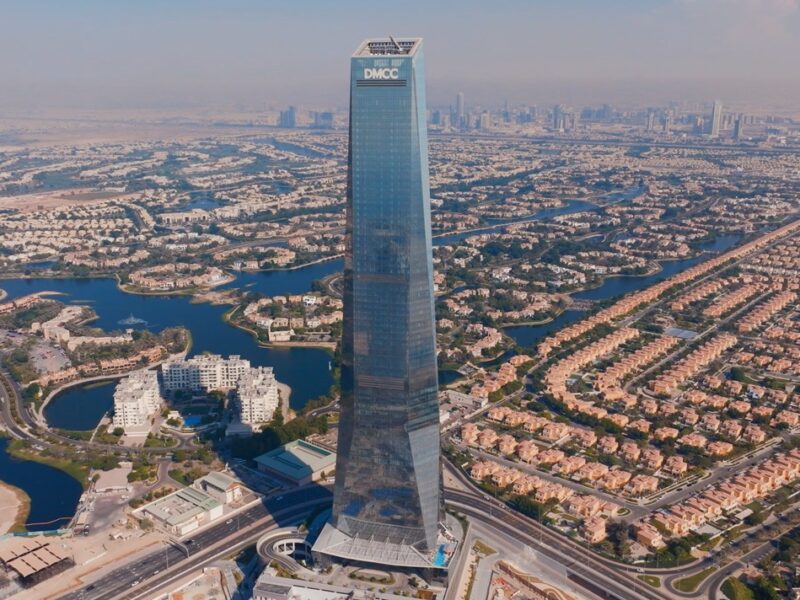Corporate leadership in 2022 will not be the same as it was pre-pandemic, and today’s CEOs need a different type of skillset to effectively lead a new generation of employees who are increasingly demanding purpose and flexibility from their employers.
Some of the values needed to create a strong relationship with employees are humbleness, authenticity and transparency, a powerhouse roundtable of leaders found. The leaders had been brought together to discuss the Middle East findings contained within the 25th CEO Survey by global professional services giant PwC.
For its annual global survey, PwC surveyed thousands of CEOs in 89 countries and territories in October and November of 2021. The Middle East research, revealed on Monday, looked at the changing face of talent acquisition in the post-pandemic world and at the skills and values that CEOs need to effectively lead and create purpose in their organisations.
To unpack the research a panel consisting of Hani Ashkar, Middle East senior partner, PwC Middle East was joined by Nabil Habayeb, senior vice president GE, president and CEO, GE International Markets, Luciano Poli, President of Dow Middle East, North Africa and Turkey (MEAT) at The Dow Chemical Company and Elda Choucair, chief executive officer at Omnicom Media Group (MENA).
With all that we’ve been hearing about hybrid work models and more flexibility in the workplace, do you see this as an opportunity for CEOs to become chief empathy officers rather than chief executive officers?
EC: They will have no choice, as is evident in the survey. It is inspiring to see that others are realising the importance of what we can do to develop the human resources that we have and, as leaders, how we can account for that.
Most people who are suffering from burnout don’t know that they are suffering from burnout and by the time you identify them and try to help them, sometimes it is too late.
We are seeing phenomena like the Great Resignation across the world and all the people I speak to are struggling with the same [issues], which brings us back to the talent piece and some of the inflation in salaries that we are seeing.
All of these are linked and not doing anything about [mental health] would be a mistake. We definitely have to have strategies in place and we have to work together, as a community of leaders, to find solutions for it; there is no one person or strategy that can solve it just like there is no one solution.
In the CEO survey, you clearly called out that CEOs are looking at, and investing in, leadership skills and talent. What are some of the key things that were coming through that part of the research?
HA: Leadership development is one of those areas that, when times are tough and when people aren’t interacting together in-person, you tend to cut back on, paradoxically when you need it the most. I know from our own experience that leadership development took a back seat for a couple of years, as we didn’t to have those leadership programmes virtually. So there has been a little bit of a delay, and now we are playing catch-up.
More importantly, we’re operating in a much more complex world; we’re discussing issues like ESG, digital transformation and the world of crypto, which are not topics you can just speak on intuitively and we all need to learn more about to make a real impact.
The talent piece, and how to lead, mentor, coach and inspire in a hybrid world, is something that we all need to understand better. The digital tools that are now available, for example, are very different and if you are not at least vaguely familiar with this, then you’re missing the potential that is there to transform how we work.
So leading today is a very challenging exercise which requires a broad range of skills, not just interpersonal. CEOs are realising that to lead in 2022 requires a different type of skills and we need to make that investment in time and effort to bring ourselves and our teams to that level to lead in a very different world.
What are your thoughts on the leadership change?
NH: The key thing as leaders and managers is to develop this personal relationship with employees and make them feel comfortable to speak up and have a regular discussion.
I work extremely closely, on a daily basis, with all of my leadership team and beyond, with the help of a strong HR and communications team, to make sure the messages are going to the right audiences.

It requires a certain kind of skillset which we have tried to build over the past few years. For us, it is about the humility of the leadership to reach out and develop a cordial and strong relationship with employees. It’s about transparency and making sure you are sincere and have no hidden agenda, as much as it is about focusing on execution where you have to maintain accountability for the work that needs to be done. I think these values are critical from what we have seen over the last couple of years.
Sharing personal experiences is key as well; we all went through different stages of our careers and experienced the stress and anxiety at various points, so [as a CEO] not being afraid to speak about it and how you coped with it is important for employees.
These are the characters that we want our leaders to have because this is what will help attract talent and retain it.
If the leadership sitting on top of companies doesn’t embrace this, there is no way that culture- change can cascade down. We’re coming out of the pandemic where the words ‘value’ and ‘purpose’ have been used more and more. How vital is it that leadership changes and evolves in that space?
LP: I think it is key, and leadership should be the first to embrace these values and attributes.
Empathy, transparency, and inclusion are extremely important; you need to create an environment and culture where people can progress and thrive which has a direct impact on the company’s sustainable and successful growth. Sometimes as a leader, you need to intervene and put certain frameworks for people to progress and improve.
The idea is to try and include as many employees as possible. I always say this is a team sport: it is not me crossing the line first but all of us coming together to cross the line.

People are smart and they see how you behave, and as a leader, you certainly need to be credible and trusted. It is also important to be humble and admit what you are good at and what you are not good at, which takes a lot of strength.
That feels like a big change, that, at a leadership level, you are no longer expected to be sort of superhuman.
NH: What is also important, aside from the values that we want in a leader, is to combine that with a business strategy that also shows how important employees are. For us, our whole business strategy is based on SQDC (safety, quality, delivery, cost) – in that order.
Safety as our number one priority touches on the importance of how much we care about our employees and the products that we give our customers – that has really resonated well with our team.
HA: I think we should spend a little more time on our more junior colleagues that are there because the experience of the last couple of years has not been great for them. Those who have joined during Covid-19 had a disrupted experience where they spent a lot of time at home.
And while some of us who are long in the tooth are okay in that environment, what we don’t realise is that the ability to learn the culture of the organisation is much more difficult remotely. Flexibility does not necessarily mean an easier way of doing things, especially if you are a junior person because you might end up bearing the brunt of a senior team member’s flexibility requirements. This is where empathy is very important because the experience of flex and hybrid is not necessarily as good as we think it is.
What we have also seen is that while a couple of years ago people were keen on purpose in the workplace, pay is moving up and so, is it ‘pay over purpose’ or vice-versa? We’re seeing that people are looking for three things: flexibility, culture – meaning a place where they can learn and connect and make a difference – and finally they want to be paid well. That’s contributing to the Great Resignation: people are thinking that if work for me is staring at a screen all day, I might as well get paid more for doing the same thing somewhere else.

When we look at the Great Resignation, it is often the millennials and the Gen Zs that are leading the way. Do companies that don’t embrace this, and look into their practices and invest in the talent, face an existential crisis? As large organisations, if you lose those Gen Zs, how do you continue to evolve?
EC: We see this not only in our junior employees but children as well; they come from a different perspective and we have to make an effort to understand them. They are living a somehow more privileged life than previous generations and with that, in my opinion, you have the luxury to question certain fundamentals and demand purpose.
Purpose aside, there are other things you can provide them with as a company which is upskilling. With the pandemic, and given that we are in the business of people, we thought long and hard about what is training and whether it is the same as learning and development.
We used to classify everything under the same title of learning and development or L&D, but training and L&D are two different things. Training is where you are giving to get or receive [a benefit] but L&D is something they take and become better professionals with skills they can take with them somewhere else – so it is almost giving with no return.
There is definitely a talent crisis with the Great Resignation and with leaders focusing on what they can do better in terms of HR and development – all of this is linked to what the company is giving the employee, what they are getting back and being honest and humble about it.








